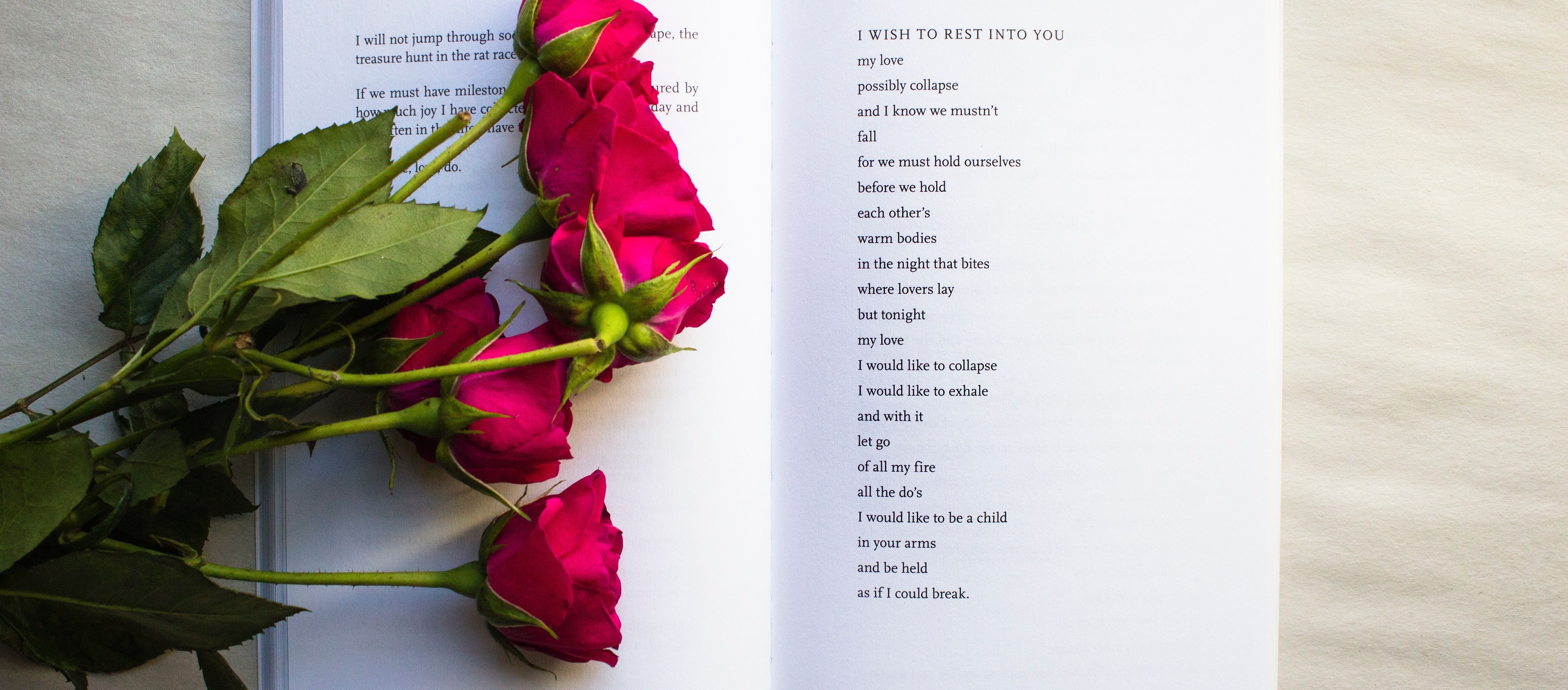How to read poetry and enjoy it
Often when I express my enjoyment of poetry the response is how it’s ‘confusing’ or ‘difficult’. My response? Poetry can be accessible – and, shock horror, enjoyable – if you ditch the preoccupations and traumatic memories of GCSE English Literature. Poetry doesn’t have to be complicated. It can be just as simple as you make it.
When you read a poem, you don’t have to read every word separately and think of the hidden meaning. The poet might simply have meant the curtains were blue and that’s up to your interpretation. If you enjoy the process of fragmenting the poem and finding this hidden meaning – go ahead. If you believe the curtains truly were just blue, you can. No one is going to force you to read between the lines.
Like novels, you won’t find what you like straight away
Poetry isn’t just William Wordsworth or John Keats. If you find yourself baffled by poetry of the past, it doesn’t mean that you hate all poetry or all poetry is old and irrelevant. Carol Ann Duffy wrote a great poem – simple and easy-to-follow – in response to the General Election of 2017.
Experiment with it. Read contemporary poetry, old poetry or 20th-century poetry. Like novels, you won’t find what you like straight away and there will always be one which you toss aside. Perseverance is key.
If you don’t like a poem, trust your gut. Don’t spend ages reading it over and over again to gauge the meaning – trust me, you might understand it eventually, but you probably won’t enjoy the process.
The first time you read a poem, the initial response could be: ‘but what does this mean?’. It doesn’t mean there is a hidden meaning you need to understand – it might just be that you’re not used to the syntax used by the poet, or you’re just not used to poetry.
A great place to find short, simple poems is Instagram
First step: read the words. Clearly, reading the words is crucial for the general understanding of the poem. But it isn’t just the words that you need to focus on; you also need to read the sentences. Be careful where the sentences fall, because it isn’t always at the end of a line. It can completely change the sense of the poem if you are putting the sentence endings in the wrong place. Reading aloud can help you with this, as your voice will naturally pause where the sentences are.
Once you find a poet you enjoy, all the steps of reading and enjoying poetry fall into place. A great place to find short, simple poems is Instagram. Instagram poetry tends to fit in with your daily life. You don’t have to go out of your way to read the poetry – follow a few you like and, when you’re inevitably scrolling through Instagram on the U1 or waiting for your pizza to cook, you can easily read tonnes of short poems.
Rupi Kaur started posting her poetry on Instagram in 2014, and her career has taken off. She has published two collections of poetry and has 2.6 million followers on her Instagram account. Another popular Instagram poet is R.M. Drake, who has released four collections of poetry and has 1.8m followers.
Trust your emotional response
The poetry you find on Instagram is commonly very short – some are only a line or two, but others are slightly longer. However, Instagram poetry is definitely not as lengthy as some of the older poems, such as Coleridge’s The Rime of the Ancient Mariner or Tennyson’s In Memoriam, which need a lot more time dedicated to them.
If you areb’t forcing yourself to read lengthy poems or sitting down and thinking ‘right, now I’m going to read some poetry’, it’s much easier to enjoy it.
Ultimately, don’t overthink it. Trust your emotional response.

Comments (1)
i read a lot of poetry across all mediums. i agree that instagram is probably the best access point for more mainstream poetry, but i do find that the poetry on instagram tends to be far more limited to short lined “instapoetry” in the style of RM Drake and Rupi. Not too much other variety.
I currently use commaful for more of my poetry reading because it has more variety, but I understand it is more niche so you have to be more actively seeking poems to be on it.
overall, this piece hits the nail on the head. reading poetry is a very personal endeavor and we will all respond differently